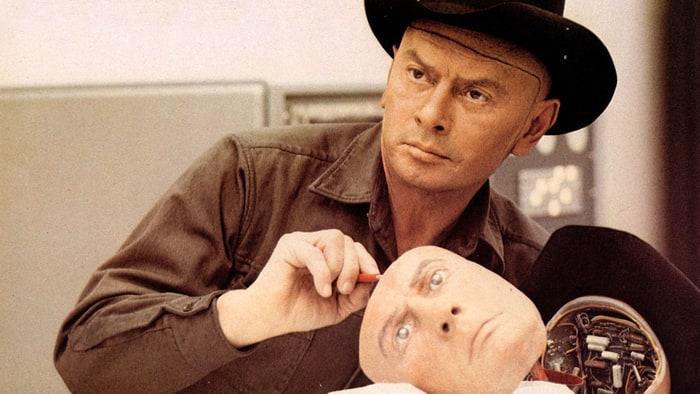Michael Crichton’s 1973 sci-fi and Western mash-up is the best kind of genre film, one that uses familiar conventions to ruminate on the unconventional. In the case of Westworld, a futuristic theme park is the setting for discussion about how unprepared we are for that moment when artificial intelligence surpasses the human kind.
Delos is a $1,000-a-day wonderland, filled with lifelike robots, that makes real the violent and sexual fantasies of (mostly male) American tourists. “The vacation of the future today,” the company promises, offering consumers the opportunity to engage in orgies in the Roman Empire, sword fights in Medieval times or shootouts in the 1880s Wild West. Two Chicago guys (James Brolin and Richard Benjamin) head to Westworld, where they encounter a plethora of mechanical varmints and strumpets who are programmed to lay down–in gunfights or sexually–for their human “betters.”
But the technology inside the robots has continually improved, and they’ve begun showing signs that they’re just about done taking orders. In fact, the Singularity is nearer than anyone knows, and the bots begin to bite back. Pretty soon, humans are on the wrong end of jousts and duels as the tin machines become killing machines.
One particularly ornery automated gunslinger (Yul Brynner) seeks out Benjamin’s mild-mannered tourist, a lawyer who thought some harmless adventure would help him through a rough patch after a bitter divorce. At this point, the film puts aside its big ideas in favor of a mano a roboto faceoff. But no matter how this particular battle plays out, the war seems to have an unavoidable conclusion, one infused with a knowledge that we will no longer be able to control or understand. As one dejected scientist says resignedly about the robots run amok: “They’ve been designed by other computers…we don’t know exactly how they work.”•

